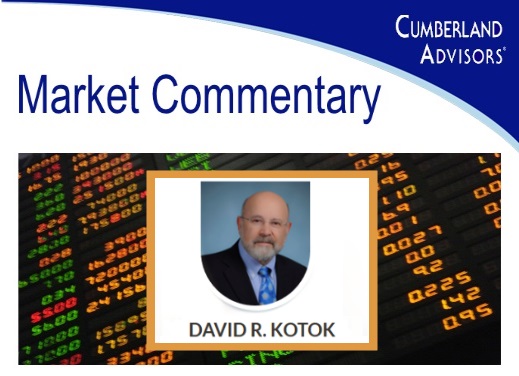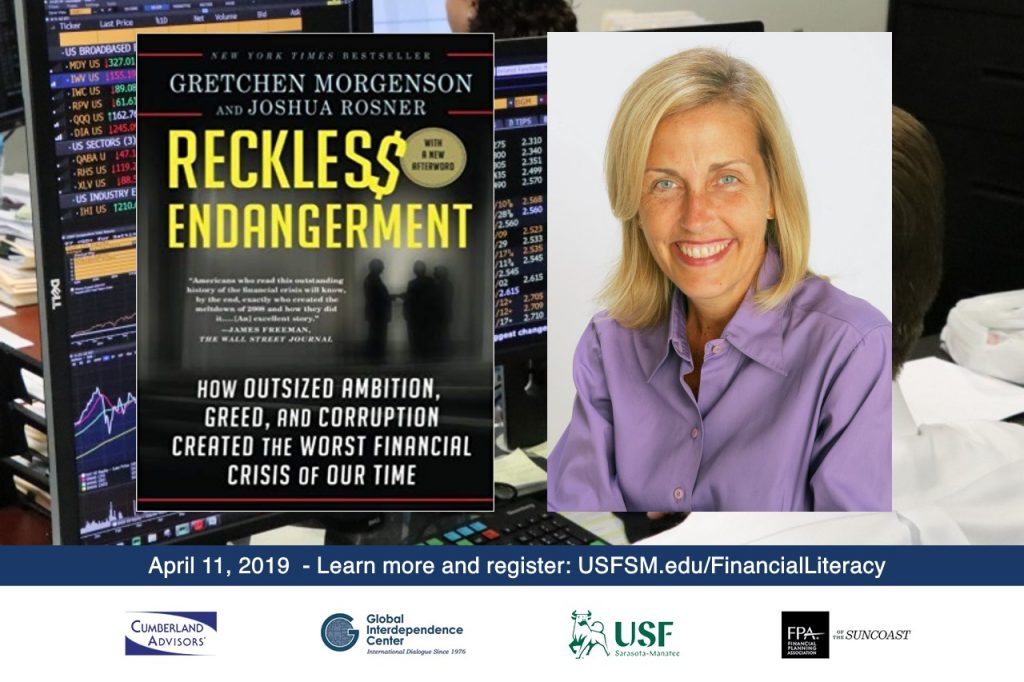Dear Readers,
I got praise and punishment on “Defending First Amendment Freedoms” part 1. As expected, the deep and intense political division in our nation showed itself again. And there was the usual “blowback” about my writing about something more than just market analysis. For those critics who are money-only focused, I’ll start this piece with a prefatory comment that applies directly to your wallet.

Just think for a minute. Without an unrestricted free press, would you be able to read Gretchen Morgenson’s story on insurance regulation in the WSJ? (“A State Investigator, the Financial-Adviser ‘Heir’ and an Elderly Client: How Lines Get Blurred in Insurance Regulation,” April 6, 2019: https://www.wsj.com/articles/a-state-investigator-the-financial-adviser-heir-and-an-elderly-client-how-lines-get-blurred-in-insurance-regulation-11554548401) Or could you find Heather Long’s reporting in the WAPO on Steve Moore? (“Trump’s Fed nominee Stephen Moore was found in contempt of court for failing to pay ex-wife more than $333,000,” April 5, 2019: https://www.washingtonpost.com/business/2019/04/06/trumps-fed-nominee-stephen-moore-was-found-contempt-court-failing-pay-ex-wife-more-than/?utm_term=.14176d11ed50)
The free press tells investors about a large aircraft maker in trouble or about a huge bank misbehaving or about an auto manufacturer’s misdeeds. First Amendment rights are the most basic underpinning of American life, our economy, and our financial markets.
Now let’s get started on free speech.
Defending First Amendment Freedoms
Part 2: Freedom of Speech
First Amendment rights are a big part of what has made America great; and yet, tragically, for most of their history the US government and the states have systematically and legally denied the fundamental rights of many of our citizens. Early American governance was white, land owning and male. Indeed, until the 14th Amendment was passed in 1868, African Americans were not even recognized as citizens; and citizenship was not extended to Native Americans until 1924. Remember that women’s suffrage was ratified as the 19th amendment in 1920, and we will celebrate its 100th anniversary next year in conjunction with the presidential election.
The yawning gulf between America’s aspirations as the Land of the Free and its political realities, especially with respect to race and religion, was so obvious that when, in 1935, the German National Socialist Party sought to codify the Third Reich’s race-based legal philosophy, it dispatched a team of 45 lawyers to the US, to gain “special insight into the workings of American legal and economic life through study and lectures.” The delegation was warmly received at a reception organized by the New York City Bar Association.
This disgraceful episode in our history is detailed in a November 2017 article in The Atlantic, entitled “What America Taught the Nazis,” by Ira Katznelson, a professor of political science and history at Columbia University. Katznelson focuses on the work of James Q. Whitman, Ford Foundation Professor of Comparative and Foreign Law at Yale Law School and author of the book Hitler’s American Model. Katznelson writes:
"Every day brings fresh reminders that liberal and illiberal democracy can entwine uncomfortably, a timely context for James Q. Whitman’s Hitler’s American Model, which examines how the Third Reich found sustenance for its race-based initiatives in American law."
Let’s recall that even as the Nazis were relocating and then exterminating vast numbers of Jews and other ethnic and socially marginal populations in Europe, the US, under the guise of President Roosevelt’s Executive Order 9066, was stripping tens of thousands of American citizens of Japanese ancestry of their property and forcing them to relocate to internment camps (even as many of these loyal citizens enlisted in the US armed forces and went on to fight bravely against the Axis powers). Tom C. Clark, retired Associate Justice of the US Supreme Court wrote:
"The truth is – as this deplorable experience proves – that constitutions and laws are not sufficient; they must be given life through implementation and strict enforcement. Despite the unequivocal language of the Constitution of the United States that the writ of habeas corpus shall not be suspended, and despite the Fifth Amendment’s command that no person shall be deprived of life, liberty or property without due process of laws, both of these constitutional safeguards were denied under Executive Order 9066."
And not just in shaky legal underpinnings has the US failed its citizens and given comfort and support to the forces of racial, political, and economic oppression; we have done so in the public arena as well. For instance, on February 20, 1939, 20,000 people filled Madison Square Garden to celebrate the rise of Nazism. This largely forgotten event is recounted in a documentary film titled A Night at The Garden, directed by Marshall Curry and produced by Laura Poitras and Charlotte Cook. The seven-minute film, which consists entirely of archival footage of the event, premiered at Sundance in 2018 and was nominated for the Academy Award for Best Documentary Short. The film can be viewed here: https://vimeo.com/237489146. See also https://rarehistoricalphotos.com/american-nazi-organization-rally-madison-square-garden-1939/.
At this gathering, Nazi Fritz Kuhn, a German-born, naturalized American citizen, calls for America, assuredly a nation of immigrants, to be controlled by only a subset of the myriad citizens who built and defended the country:
"Ladies and gentlemen, fellow Americans, American patriots, I am sure I do not come before you tonight as a complete stranger. You all have heard of me through the Jewish-controlled press as a creature with horns, a cloven hoof, and a long tail. We, with American ideals, demand that our government shall be returned to the American people who founded it. If you ask what we are actively fighting for under our charter, first, a socially just, white, Gentile-ruled United States. Second, Gentile-controlled labor unions, free from Jewish, Moscow-directed domination."
There is something quite familiar today about this language of exclusion, this valorizing of one group paired with the systematic disparaging of others, including those who raise their voices to object. Do take the time to watch this short film. Then ponder this question: if American Nazis were to pack Madison Square Garden for a rally today, would their First Amendment right to free speech be protected? An article on History.com explains,
"The U.S. Supreme Court often has struggled to determine what types of speech is protected. Legally, material labeled as obscene has historically been excluded from First Amendment protection, for example, but deciding what qualifies as obscene has been problematic. Speech provoking actions that would harm others – true incitement and/or threats – is also not protected, but again determining what words have qualified as true incitement has been decided on a case-by-case basis." (Source: https://www.history.com/topics/united-states-constitution/first-amendment#section_3)
We may get a sense of the current limits to free speech by examining the Unite the Right rally that was held in Charlottesville, VA, from August 11 to 12, 2017. According to Wikipedia (see https://en.wikipedia.org/wiki/Unite_the_Right_rally),
"Protesters were members of the far-right and included self-identified members of the alt-right, neo-Confederates, neo-fascists, white nationalists, neo-Nazis, Klansmen, and various militias. The marchers chanted racist and anti-semitic slogans, carried semi-automatic rifles, Nazi and neo-Nazi symbols (such as the swastika, Odal rune, Black Sun, and Iron Cross), the Valknut, Confederate battle flags, Deus Vult crosses, flags and other symbols of various past and present anti-Muslim and anti-Semitic groups."
The march was allowed to proceed; but on the morning of August 12, Virginia governor Terry McAuliffe declared a state of emergency, stating that public safety could not be safeguarded. Then, within an hour, the Virginia State Police declared the rally to be an unlawful assembly. By then, however, the event had turned violent after protesters clashed with counter-protesters, leaving more than 30 injured. And a couple hours later, at around 1:45 PM, self-identified white supremacist James Alex Fields, Jr., deliberately drove his car into a crowd of counter-protesters about half a mile away from the rally site, killing one person and injuring nearly 40 others. Readers are invited to read the rest of the documentation of this recent history for themselves. There is much political debate from all sides about Charlottesville.
Fast forward, and on March 22, 2019, President Trump issued an executive order requiring colleges to certify that their policies support free speech as a condition of receiving federal research grants. The president had promised earlier in the month in an address to the Conservative Political Action Conference (CPAC) that he would do something about what he called a political climate on liberal college campuses that discourages discourse. His executive order makes research funding conditional on “compliance with the First Amendment” and directs federal agencies to ensure that institutions receiving federal research or education grants “promote free inquiry.” (Source: https://www.npr.org/2019/03/22/705739383/trump-and-universities-in-fight-over-free-speech-federal-research-funding)
Political posturing aside, we agree with President Trump’s use of the words “compliance with the First Amendment.”
It takes freedom of speech to defend the First Amendment and articulate why you are doing so. This essay is an example. And it takes freedom of the press to investigate and report. It takes a citizenry willing to think about issues and engage in civil debate for a democracy to succeed. If we, the public, are lazy or distracted, we end up with the government we deserve. History says we won’t like the government we get if most of us are passive about it.
I personally defend the rights of writers and media personalities, even when I disagree with them. I use their work in my time-consuming effort to sort out facts from opinions. At Cumberland, we constantly review all media in our daily effort to comprehend finance and economics. In the opinion category, we watch the pro-Republican Fox trio of Carlson, Hannity, and Ingraham and the pro-Democrat CNN trifecta of Cooper, Cuomo, and Lemon. We see or hear Maddow and Limbaugh. We can list many others. Watching or hearing or reading all of them is to get a more holistic view of the divided America we have become.
Only a vigorous defense of the US Constitution, and the First Amendment in particular, stands between our repeating history and suffering further tragic outcomes. That is why freedom of speech and of the press are so important. George Santayana’s famous dictum applies: “Those who cannot remember the past are condemned to repeat it.”
On April 11, 2019, Pulitzer Prize winning journalist, Gretchen Morgenson, is the keynote speaker at Cumberland Advisors' "Financial Markets and the Economy - Financial Literacy Day III" event in Sarasota, Fla. Gretchen champions the free press; it's not a left-right issue. Pertaining to her Fannie Mae investigative reporting, she cited the secrecy at the Obama White House as yet another sign of a pattern that Margaret Sullivan (public editor at The New York Times) identified as the administration's "unprecedented secrecy and attacks on a free press."

We encourage you to join us April 11th at the Selby Auditorium of the University of South Florida Sarasota-Manatee and hear Gretchen Morgenson's accounts of exercising our cherished First Amendment to uncover truth at the highest levels of government and business. Details below.
Update (04/12/2019): Gretchen Morgenson's keynote address and Q&A session from the conference are posted here. Enjoy!

